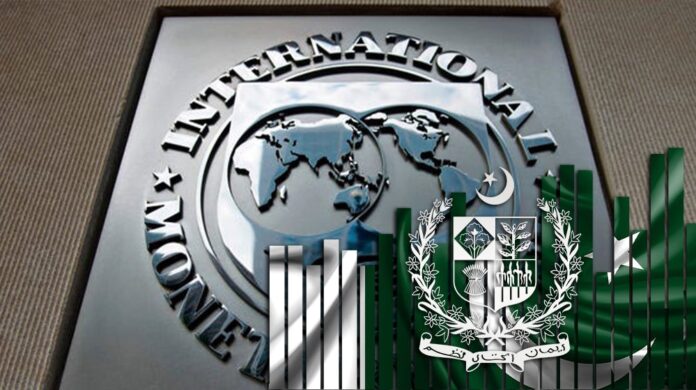Finance Minister Muhammad Aurangzeb acknowledged that there were setbacks in the implementation of Pakistan’s $7 billion International Monetary Fund (IMF) programme but reaffirmed the government’s commitment to meeting the programme’s objectives.
The minister made these remarks during a briefing to the National Assembly Standing Committee on Finance, amid opposition calls for broader asset disclosures, including those of the military and judiciary, in line with IMF conditions.
Aurangzeb’s statement came as the committee was informed that the government had failed to meet several IMF conditions, including a target related to debt maturity. The Federal Board of Revenue (FBR) and provincial governments were also behind on several deadlines, prompting a visit from IMF staff to Pakistan.
“There are going to be hiccups, but our administration is clear that we are going through it,” the finance minister told the committee.
The Express Tribune reported, citing sources, that the committee meeting, chaired by Syed Naveed Qamar of the Pakistan Peoples Party (PPP), was closed to the media at the minister’s request. Despite objections from committee members, Qamar exercised his right to ask the media to leave.
The discussions confirmed ongoing difficulties in the $7 billion IMF programme approved by the global lender on September 25, 2024. Qamar described the programme as “comprehensive,” noting that challenges were expected during implementation.
The Sindh government, according to finance ministry sources, has encountered issues with the National Fiscal Pact, a key element of the IMF programme.
The IMF’s unscheduled visit to Pakistan followed reports that some targets set by the programme were not being met shortly after its approval. Finance Secretary Imdadullah Bosal briefed the committee on the implementation status, revealing that the finance ministry had also missed a target to increase the weighted average time-to-maturity for local currency debt. This was one of the conditions set by the IMF, which had been due by the end of September 2024.
Another missed target, Bosal disclosed, was the requirement to allocate Rs685 billion to health and education during the first quarter. Despite repeated statements by the finance minister highlighting the importance of addressing child stunting and learning poverty, this condition was also not met.
The FBR reported a shortfall of Rs89 billion against its three-month target of Rs2.652 trillion, a gap that has now widened to Rs341 billion by the end of November 2024. In response, the Inland Revenue Service Officers’ Association (IRSOA) criticized the government for the revenue shortfall, attributing the failure to a flawed policy framework and internal discontent among FBR officers.
In another development, the IMF has set a deadline of January 2025 for discontinuing gas supplies to industries, a measure that has raised concerns within the Petroleum Division. However, the IMF has not yet agreed to amend this condition.
One of the key IMF requirements still pending is the amendment of the Civil Servants Act to ensure that asset declarations of high-level public officials, including their family members, are publicly accessible and digitally filed by February 2025.
Opposition leader Omar Ayub Khan suggested that the assets of the military and judiciary should also be disclosed, a recommendation that was met with approval from the finance minister and secretary during the in-camera session.
Khan also questioned the ministry’s transparency regarding the Special Investment Facilitation Council (SIFC) and the foreign investment it had attracted. The finance ministry was unable to provide details on the matter.
The opposition leader also raised concerns over the government’s lack of a clear plan to address the expanding tax shortfall, which has reached Rs341 billion.
Additionally, Khan pointed out that the FBR had failed to meet its target of collecting Rs120 billion from excise duty on cigarette filters, with smuggling being a major factor in the shortfall. He argued that smuggling could not occur without the involvement of law enforcement agencies.
The IMF also set a condition to triple the agriculture income tax rates, which the government has not yet met.




